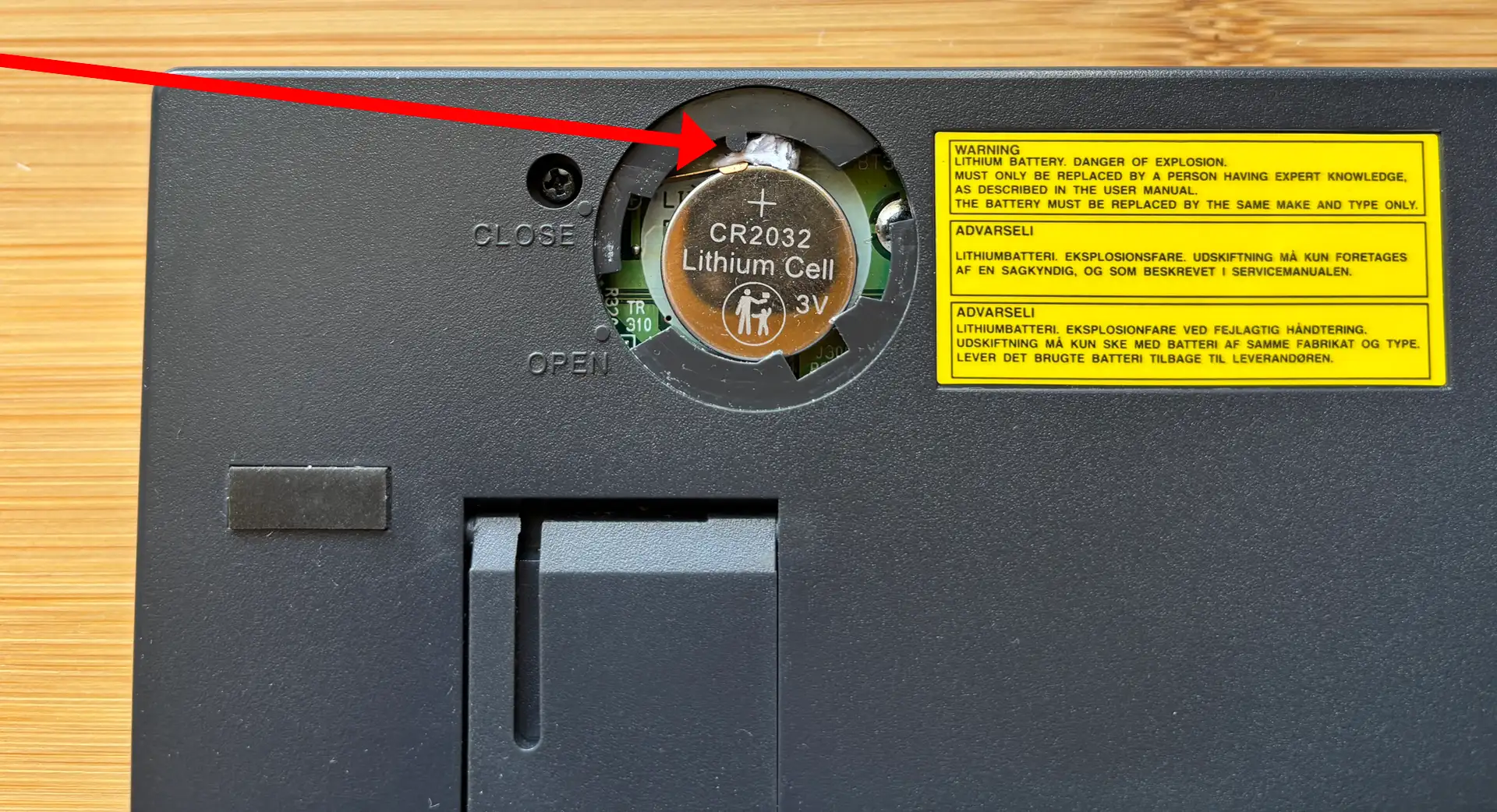NC100 Tips and Tricks
General
Screenshots
Press Control-Shift-S to dump the NC100’s display to storage.
The file will be 4096 bytes in size: each row of 480 pixels is stored in a sequence of 60 bytes, with one bit per pixel. Each row is padded with four empty bytes, so that’s 64 bytes per row over 64 lines: 4096 bytes.
Screenshot files are stored as s.{extension} where {extension} starts at a and continues through the Ascii printable character set and then cycles back to a.
Transfer screenshot files to your computer in the usual way.
Power On Self Test (POST)
Hold down Shift-Symbol on power up to be offered the option to run the NC100’s POST routine.
Lithium Cell Issues
If you are experiencing warnings concerning the low power level of your NC100’s lithium back-up coin cell, especially if the battery is nowhere near the end of its five-year lifespan, carefully insert a small wedge of plastic or paper between the casing and the cell’s spring-mounted positive terminal. This will maintain battery connection during minor movements and knocks, and should eliminate the warning.

A non-conducting wedge will hold the coin cell terminal in place
File Selector
Word Processor
Page/Character Mode
Within a document, hit Control-Shift-P to switch between page mode (the default) and character mode.
Character mode hides the page boundary markers and displays a character count in the status bar.
Protext Command Mode
Within a document, hit Control-Shift-Stop to enter command mode. Hit Stop to exit.
Command
Argument(s)
Notes
DU
{address}Dump the memory from
{address}in hex.
Press Stop to pause the display.
Press Space to continue, or Stop again to exit.
MM
{page}Switch the specified 16KB RAM or ROM page into
the Z80 addressable space at address0x4000.
Key
{macro key} "{macro definitiion}"Define a macro.
BBC Basic
Operating System Commands
OS Command
Argument(s)
Notes
*EXEC
{filename}Loads the file as if the user was typing it. This can
be used to transfer Basic text files to the NC100 and have
it then loaded by Basic. After loading run
SAVE "{filename}.BAS"to save as a true Basic file.
*SPOOL
{filename}.TXTOutput what follows to the named file. Typically follow this
command withLISTto write a program to a text file for
transfer to another machine or editing in the NC100
word processor.
*CAT
*DIRN/A
List stored files.
*RENAME
{old name}
{new name}This works on all documents.
*DELETE
*ERASE
{filename}This works on all documents.
*ESC
ONorOFFToggles the ability of the Stop key to interrupt a running
program. If disabled, Stop operates as Esc.
*KEY
{key}{string}Redefines the specified key to return the specified string,
macro fashion.
*LOAD
*SAVE
{filename}
{address}
{count}Load or save a memory block to or from the address from or
into the named file.{count}is only relevant to a save.
*QUIT
*BYEN/A
Exit Basic to the main NC100 menu.